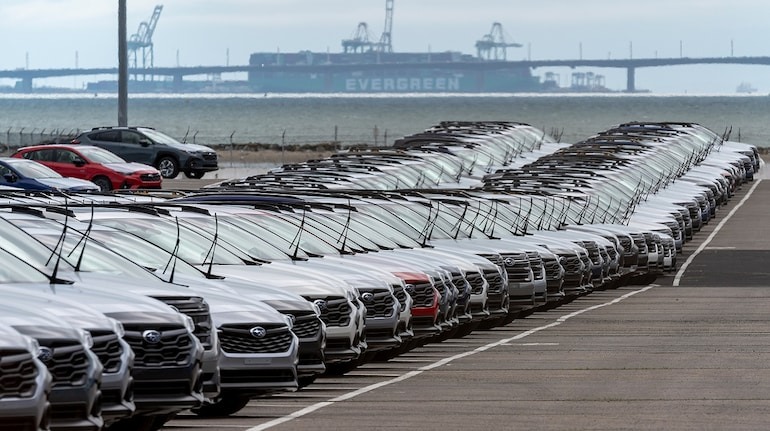
As the consequences of President Donald Trump's tariff strategy are becoming clearer, one disturbing reality is forming in the automotive sector:there are many losses, but not many gains.
From South Korea's Hyundai Motor Co. to Germany's Volkswagen AG, and even American's very own General Motors Co., some of the most famous automakers from different countries will soon have to deal with Trump's new taxes on auto imports and other important parts, which will result in greatly increased costs.
According to Sam Fiorani, vice president of global vehicle forecasting for Autoforecast Solutions, there isn't much to be gained: ”There are very few winners. Consumers will be losers because they will have reduced choice and higher prices.”
One clear winner of the tariff mess is Elon Musk. Tesla Inc. can now afford to have massive factories in Texas and California that manufacture all the electric vehicles they sell within the United States. Ford Motor Company is also likely to be sheltered from some of the damage their competitors are bound to incur, as nearly four in five automobiles sold by them in the United States are made within the country.
The newly, even more aggressively, applied tariff system goes live next week – the 25% charge will now be applied to all light trucks and passenger vehicles, as well as major components like transmissions and engines. These will now have to bear additional charges like any other already in place.
Because the tariffs are most favorable for US parts suppliers, automakers benefit. Moreover, Trump permitted an exception: the new tariffs will be only partially imposed on the foreign content of the eligible vehicles and parts under the freetrade agreement with Canada and Mexico.
That could ease the pain for vehicles that have supply chains that are complicated. The US tariffs on some parts from Canada and Mexico that meet the trade agreement's terms will not be implemented until the US establishes a procedure to impose those tariffs.
America's neighbors may attempt to take advantage of this gap to avoid total enforcement, although it is unlikely.
Regardless, this move undermines the free trade agreement that Trump softened toward the end of his first term, which allowed for an efficient supply chain to form in North America. Prime Minster of Canada Mark Carney is quoted saying, “the tariffs are a direct attack.”
The most affected will be foreign brands that depend heavily on vehicle imports. South Korea’s Hyundai is poised to to be one of the hardest hit. While they and their affiliate Kia have plants in Alabama and Georgia, and recently announced $21 billion US expansion plan this week, they still imported over a million vehicles to the US last year, which Global Data reports is over half of their sales in the country.
“Hyundai remains committed to the long-term growth of the US automotive industry through localized production and innovation,” the company stated, adding that they employ 570,000 Americans.
According to an analyst with SK Securities Co. based in Seoul, Hyundai and Kia might lose up to 10 trillion won ($7 billion) each year if the 25% tariffs are enforced. If true, that amount would represent almost 40% of operating profit gained by the two companies in 2024. That figure seems preposterous.
However, comes an analyst’s report telling Toyota, the biggest automaker, that despite the existence of four assembly plants in Indiana, Kentucky, Texas, and Mississippi, and engine plants in Alabama and West Virginia, the company imports almost half of its sales in the United States.
None of Detroit’s automakers were spared. GM sells Chevrolet Equinox crossover SUVs, along with its family car, which are design for out in Mexico with its electric versions. Silverado muscle trucks are brought in from Canada, as well as a Chevy Trax compact SUV from South Korea. Last year alone GM sold over 200,000 units of the Equinox and Trax. They are amongst his cheaper cars. The amazing company also assists people with blends of the Equinox and Blazer.
Stellantis NV imports its Chrysler Pacifica minivans from Canada, and compact Dodge Hornet and Fiat 500s from Italy. However, Stellantis NV produces the Jeep Compass and Wagoneer S SUVs in Mexico.
Despite Ford being centered around the US more than its competitors, they're also suffering in their own ways. Ford produces their cheapest vehicle, the Maverick small pickup, in Mexico along with the Bronco Sport compact SUV and Mustang Mach-E electric vehicle.
Read More: Sensex’s Wild Ride What Every Small Investor Needs to Know Before Closing Bell

 Share
Share


_1531794722_100x75.jpg)
_591321350_100x75.jpg)